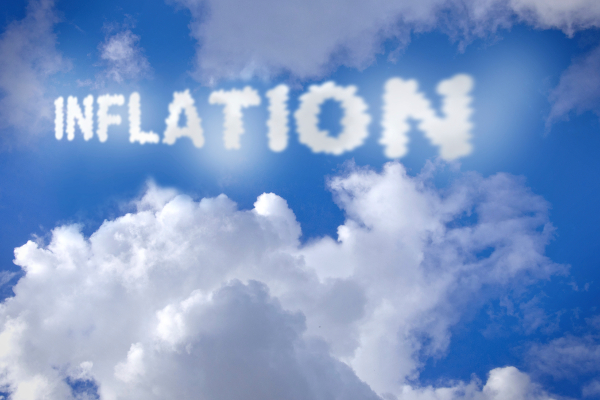Inflation falls to four-year low – will it ever start to rise again?
The figures cover the second full month that the UK was in lockdown. As a result, the low level of infla…
17th June 2020 11:32
by Tom Bailey from interactive investor
The figures cover the second full month that the UK was in lockdown. As a result, the low level of inflation is not likely to come as a surprise to many.

The UK’s rate of inflation has fallen to its lowest level in four years. According to the latest figures from the Office of National Statistics the consumer price came in at in at just 0.5% in May.
The figures cover the second full month that the UK was in lockdown. As a result, the low level of inflation is not likely to come as a surprise to many.
As Laura Suter, personal finance analyst at AJ Bell notes: “Consumption practically ground to a halt in May, with large swathes of the country shut down due to the Covid-19 lockdown. Another drop in inflation was an inevitable consequence and the fall to 0.5% takes CPI inflation to its lowest level for four years.”
Consumption ground to a halt largely due to the lockdown forcing all but essential shops to close in May. In particular, the figures show a fall in the price of clothing and footwear. In contrast, the price of food rose in May, made possible by supermarkets being some of the few shops allowed to trade over the period.
Also bring down CPI was a 16.7% decline in the price of fuel. Oil prices have come tumbling down in recent months, owing to the pandemic causing a worldwide fall in demand and major producers, Russia and Saudi Arabia, failing to come to an agreement on output.
With the economy starting to re-open the expectation is that inflation will slowly start to tick upwards again. As Andrea Olivari, co-founder of digital lender Selina Finance notes: “Further lockdown relaxations and economic stimulus could start reversing this trend. There is hope that consumer demand could slowly return, especially as a result of this week's reopening of the retail sector.”
However, consumer demand is likely to remain weak and, therefore, inflation subdued. As Olivari points out, social distancing rules will still likely restrict businesses ability to operate. On top of that, many consumers may be cautious to spend, preferring to prioritise savings, if the economic climate remains weak.
Over the longer term, however, some voices are predicting a severe uptick in inflation.
For the past 30 years, inflation in advanced economies has remained relatively low, dubbed “the great moderation.” Economists disagree on what exactly caused this, with most pointing to a combination of factors such as globalisation, increased central bank independence, technological advances and demographic changes among others.
Some now argue that Covid-19 has started to process of undermining these deflationary tendencies. First, the virus could speed up the already trend of deglobalisation. If globalisation meant low inflation, surely, the argument goes, high inflation will result from its reversal. On top of that, central banks risk unleashing inflation with the recent huge expansion of their quantitative easing programmes.
But not all agree – we explore these questions in more detail in July edition of Money Observer, which can be purchased here and is on sale from 25 June.
This article was originally published in our sister magazine Money Observer, which ceased publication in August 2020.
These articles are provided for information purposes only. Occasionally, an opinion about whether to buy or sell a specific investment may be provided by third parties. The content is not intended to be a personal recommendation to buy or sell any financial instrument or product, or to adopt any investment strategy as it is not provided based on an assessment of your investing knowledge and experience, your financial situation or your investment objectives. The value of your investments, and the income derived from them, may go down as well as up. You may not get back all the money that you invest. The investments referred to in this article may not be suitable for all investors, and if in doubt, an investor should seek advice from a qualified investment adviser.
Full performance can be found on the company or index summary page on the interactive investor website. Simply click on the company's or index name highlighted in the article.